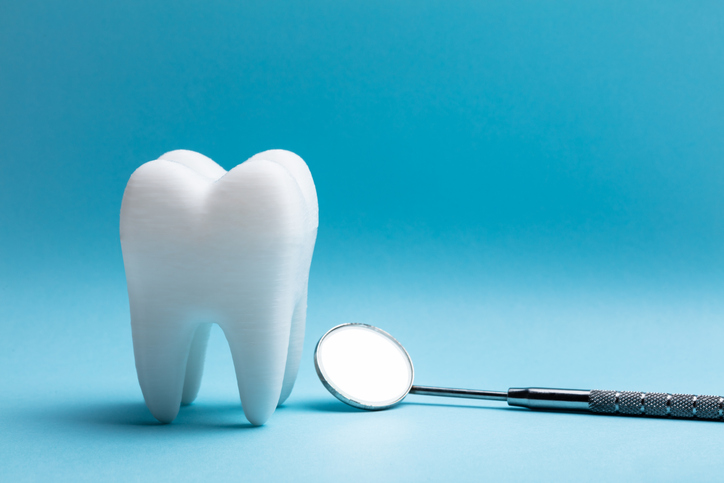
Wisdom teeth removal surgery may be common, but it still can be a little scary. Get the facts so you can go into your procedure with confidence!
Wisdom teeth removal: it’s something that most people have to go through, and it can be scary — especially if you don’t know what to expect before, during, or after the procedure. With more than 3 million people getting their wisdom teeth removed every year, the procedure is an extremely common part of life. Despite that, it’s natural to feel a bit anxious and even to wonder if the procedure is fully necessary when your doctor brings it up.
Read on to learn everything you need to know about wisdom teeth removal surgery — from why you need it, to preparation and what to expect on the day, to recovery — so you can go into your surgery armed with the knowledge you need.
Why Do You Need Wisdom Teeth Removal Surgery?
Your wisdom teeth, which are the third set of molars at the very back of your mouth, are famously problematic. That’s because they can often become impacted, meaning there isn’t enough space for them to emerge from the gums and develop normally. Impacted wisdom teeth might partially emerge or they might not emerge at all, but either way, they can cause serious symptoms that require extraction. Symptoms that can indicate impacted wisdom teeth include: swollen, tender, or bleeding gums; jaw pain; swelling or stiffness in the jaw; difficulty opening your mouth; and bad breath.
Wisdom teeth removal surgery is designed to keep your wisdom teeth from causing serious, long-term problems for your dental health beyond pain. If left untreated, wisdom teeth can cause the other teeth in your mouth to become crooked (even after corrective orthodontia like braces). Wisdom teeth can also create painful cysts in your jawbone, which can put intense pressure on your nerves. In extreme cases, a cyst may develop into a benign tumor, which will require extensive surgery to remove some of the surrounding bone and tissue. Failing to remove wisdom teeth can also lead to increased gingivitis, gum disease, tooth decay, and serious bacterial infections in your mouth. As such, wisdom teeth removal surgery can prevent all of this from occurring.
Prepping for Wisdom Teeth Surgery and What to Expect on the Day
Your surgeon will give you guidance on what to eat and drink before your surgery. Make sure you avoid alcohol and tobacco in the hours leading up to your surgery. Before you head to the office, you should check that you’ve filled out any prescription medications the doctor has given you and that you’ve purchased soft foods including smoothies, applesauce, oatmeal, yogurt, and other foods that are easy to eat without chewing after the procedure. Also, make sure you have arranged for someone to help get you home once you’re finished.
On the day of the surgery, you should wear comfortable, loose fitting clothing. If you’re getting intravenous anesthesia, wear a shirt that makes it easy to access your arm.
The good news is that, with anesthesia, you should feel no pain during the entirety of the procedure, which typically lasts 45 minutes to an hour. During the surgery, your surgeon will remove your wisdom teeth following standard procedures that differ slightly based on how much, if any, of your wisdom tooth is exposed. Once the teeth are removed, the surgeon will add stitches if they are necessary.
After the procedure is completed, you’ll be brought out of sedation and taken to a recovery room and dismissed once a specialist has cleared you to go home.
Recovering from Wisdom Teeth Surgery
Complete recovery from wisdom teeth surgery usually lasts a few days to a week, though it can sometimes take up to a couple weeks if your removal had required a more intensive procedure. On the first day, you should simply come home and rest. In the days following the surgery, you should only eat soft foods like smoothies, lukewarm soup, jello, and yogurt, but make sure you don’t use a straw since the suction is not good for the healing process.
In general, you should avoid hitting the gym too hard, spitting, using a straw, or eating tough foods for a few weeks after your procedure. While you can begin brushing your teeth after the first 24 hours, you shouldn’t use an electric toothbrush and you should focus on being extremely gentle.
As with any procedure, you will need to follow the specific instructions offered by your surgeon including guidance on rinsing your mouth, flushing out the sockets, taking medications, and more. Make sure you familiarize yourself with the allergic reactions tied to your prescription medications. If any of these occur or if you become concerned because you sense that your mouth is not healing, you should contact your dentist who will be able to guide you on the proper next steps.
The most important thing to keep in mind when it comes to wisdom teeth removal surgery is to work with a dentist you trust. At Espire Dental’s La Mesa, California practice, our specialists have the expertise necessary to deliver the smoothest, safest wisdom teeth removal surgery recovery process. We can guide you through your recovery so you can be confident that your mouth is healing correctly and you can go back to feeling your best in no time. Contact us today to learn if wisdom teeth removal surgery is right for you or if you have any questions about your recovery process.
